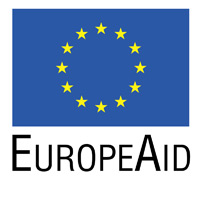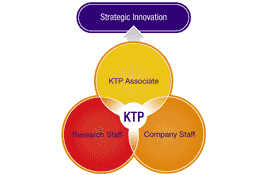Following the publication of the Atlantis Call in the US on the 1st of April 2011, the deadline for the EU-US call has been postponed to 24th May 2011. More information can be found on the EACEA webpage.
Tagged / funding
EuropeAid: Funding for EU policy development, governance, human rights, human development, food, natural resources, economy or trade
 EuropeAid is responsible for designing EU development policies and delivering aid through programmes and projects across the world, providing a single contact point for stakeholders inside and outside the EU to deal with. EuropeAid offers funding through grant calls and contract calls; to learn more about how to get funded visit the BU EuropeAid webpage.
EuropeAid is responsible for designing EU development policies and delivering aid through programmes and projects across the world, providing a single contact point for stakeholders inside and outside the EU to deal with. EuropeAid offers funding through grant calls and contract calls; to learn more about how to get funded visit the BU EuropeAid webpage.
RCUK Research Outcomes Project
 In an effort to record the outcomes and impact of research beyond the end of a funded project, Research Councils UK (RCUK) have been developing a system to gather the relevant quantitative and qualitative evidence. The information collated will be an important part of the Research Councils’ strategy development, and will be crucial in demonstrating the benefits of RCUK-funded research to society and the economy.
In an effort to record the outcomes and impact of research beyond the end of a funded project, Research Councils UK (RCUK) have been developing a system to gather the relevant quantitative and qualitative evidence. The information collated will be an important part of the Research Councils’ strategy development, and will be crucial in demonstrating the benefits of RCUK-funded research to society and the economy.
Currently, the Research Outcomes Project remains on course to go live in summer 2011, although a full roll out may not occur until autumn. Grant holders will be required to provide information on the following output types:
- Publications
- Collaboration
- Communication
- Exploitation
- Recognition
- Staff Development
- Further Funding
- Impact
The idea is for the system to allow outcomes to be reported at any point during the funding agreement and beyond, recognising that impacts from research are often realised some time after funding agreements have been completed.
The project team are engaging with users to ensure the system will be easy to use and aligned as far as possible with universities’ own research management information systems. A focus group of research managers provided feedback on the system, which is currently being built, and a pilot exercise is due to take place in August 2011.
BU is currently following the development of the Research Outcomes Project and will be looking at ways to help academics provide the required data in due course. In the meantime, please contact Anita Somner if you have any questions. To raise queries or concerns, or to make suggestions to RCUK, you can use the project email address: researchoutcomes@rcuk.ac.uk .
Lifelong Learning Programme Call: Support for European Co-operation in Education and Training
The European Commission has launched a call for proposals for the provision of support for European co-operation in education and training under the Lifelong Learning Programme.
links for 2011-04-06
Funding opportunities:
-
 ESRC – DFID-ESRC Growth Programme The Department for International Development (DFID) and the Economic and Social Research Council (ESRC) are partnering in a new programme on economic growth in developing countries. The DFID/ESRC Growth Programme will fund world class scientific research on issues relating to inclusive economic growth in Low Income Countries (LICs), with high potential for impact on policy and practice.
ESRC – DFID-ESRC Growth Programme The Department for International Development (DFID) and the Economic and Social Research Council (ESRC) are partnering in a new programme on economic growth in developing countries. The DFID/ESRC Growth Programme will fund world class scientific research on issues relating to inclusive economic growth in Low Income Countries (LICs), with high potential for impact on policy and practice.
EPSRC study days
 The Engineering and Physical Sciences Research Council (EPSRC) is holding Study Days on 17 May and 14 July at their offices in Swindon. Study Days are one-day events designed to give university researchers and administration staff an overview of the EPSRC and their peer review process.
The Engineering and Physical Sciences Research Council (EPSRC) is holding Study Days on 17 May and 14 July at their offices in Swindon. Study Days are one-day events designed to give university researchers and administration staff an overview of the EPSRC and their peer review process.
A Study Day typically involves:
- Presentations – Introductory presentations from experienced members of EPSRC staff;
- Mock Panel – Attendees have the chance to participate in a mock prioritisation panel meeting, led by a real panel convenor;
- Pathways to Impact – An interactive session offering advice on how to complete the Pathways to Impact question on the grant application form;
- EPSRC activities and opportunities – introductory talks on Transformative Research, People Support and International Engagement
- Tips on Proposal Writing – First steps in grantsmanship.
This is an excellent opportunity for any academic staff interested in applying to the EPSRC for funding.
Study Days are free to attend. If you are interested in attending please contact Julie Northam in the first instance as the Research Development Unit will administer your booking on your behalf.
For further information please see the EPSRC Study Days webpage.
Support to participate in the ESRC Festival of Social Science
 The ESRC Festival of Social Science (05.11.11) welcomes event applications targeting a non-academic audience including young people, third sector, the public, business or government. There are two types of applications available: i) applying for support of up to £2000 – due 3 June ii) applying for event to be listed: non-supported – due 17 June. If you have any questions contact one of the festival team .
The ESRC Festival of Social Science (05.11.11) welcomes event applications targeting a non-academic audience including young people, third sector, the public, business or government. There are two types of applications available: i) applying for support of up to £2000 – due 3 June ii) applying for event to be listed: non-supported – due 17 June. If you have any questions contact one of the festival team .
Sign up for FP7 information & alert service
The UK Research Office (UKRO) promotes effective UK participation in European Union funded research, higher education and training, and related activities. Established in Brussels in 1991, UKRO is jointly sponsored by the UK Research Councils.
UKRO provides information and advice on EU funding opportunities, and EU programmes and policies. You can sign up for the UKRO FP7 information and email alert service. Simply, “create a profile” (a personalised web page, covering the areas that you are interested in) and then select to receive email alerts at whatever interval you would prefer. UKRO has also produced a guide to help you understand more about this service.
Quick links
FP7 Partner Searches
 Partner search: Sport & Health – The Centre for Sport Health and Exercise Research, Staffordshire University, is seeking partners to join a research project in the fields of sports and health.
Partner search: Sport & Health – The Centre for Sport Health and Exercise Research, Staffordshire University, is seeking partners to join a research project in the fields of sports and health.
For Emotion Regulation; Emotion and Cognitive Performance; and Emotion and Motor Performance. Email marc.jones@staffs.ac.uk.
For Physical activity/health and the environment; Green space and physical activity/health; Community health/physical activity promotion; and Primary care-based health/physical activity promotion. Email c.gidlow@staffs.ac.uk
Partner Search: Turkish SME & Wearable Cardiac Diagnosis Tool – The European Care Network is seeking partners to join a research project regarding a wearable cardiac diagnosis tool (in a vest) with clinical decision support system. For further information contact n.yilmaz@euro-care.net
ESRC Demand Management consultation
 The Economic and Social Research Council (ESRC) has today published plans for how it will manage the increasing demand for its research funding. Their aim is to have fewer, high-quality applications so the best social science is funded in the most effective way.
The Economic and Social Research Council (ESRC) has today published plans for how it will manage the increasing demand for its research funding. Their aim is to have fewer, high-quality applications so the best social science is funded in the most effective way.
They will be introducing an initial programme of measures of improved self-regulation and a change to their existing peer review practices and submission policies.
These measures include:
- the introduction of an invited-only resubmission policy as of June 2011
- revised sifting mechanisms (greater use of outline applications and earlier sifting for standard grants)
- issue more tightly specified calls on managed mode schemes which address the ESRC strategic priorities
After 12 months of these initial measures the ESRC will review their effectiveness, to establish whether further steps need to be taken to manage demand. In case further steps are required the ESRC welcome your views on the potential options, particularly in relation to the following questions:
- Which main demand management options are worthy of further development and why?
- How might those options be further developed and refined?
- Which, if any of the main demand management options, would you not consider for further development and why?
- Overall, which of the options offers the best opportunities to effectively manage demand whilst ensuring the flow of high-quality research applications? Are there any further options which are not included in this paper whcich should be considered by us as part of our demand management strategy?
The deadline for the submission of responses is 16 June 2011. These should be completed using the form on ‘SurveyMonkey’ at https://www.surveymonkey.com/s/demand_management.
We would encourage all academic staff researching in the social sciences to respond to the consultation.
To ensure your research proposal stands the best chance of success use BU’s internal peer review scheme – the Research Proposal Review Service.
EU research and funding workshops


We are looking to host a series of workshops/ presentations on EU funding and we would like to hear your suggestions for topics.
What information would you find most useful? What would you like to learn more about? What format would you find most helpful?
Please comment below to let us know what you would like to see…
To leave a post:
Just click on the blue post title
1.This will open the post page
2. Scroll to the bottom
3. Add your comments in the box title ‘leave a reply’
4. Your comments will then be appended to the end of the post 🙂
New Internal Peer Review Scheme: Research Proposal Review Service (RPRS)
Submitting your proposal will strengthen your chances of successfully gaining funding. Feedback from 2 experts and the Research Unit will help you refine the proposal further prior to submission. The entire process takes less than 4 weeks and has already received praise from those who have used it. Read more: RPRS
Academic fury over order to study the Big Society: Researchers ‘over a barrel’ after coalition threat to cut £100m grant from AHRC
“Academics will study the “big society” as a priority, following a deal with the government to secure funding from cuts.  The Arts and Humanities Research Council (AHRC) will spend a “significant” amount of its funding on the prime minister’s vision for the country, after a government “clarification” of the Haldane principle – a convention that for 90 years has protected the right of academics to decide where research funds should be spent.”
The Arts and Humanities Research Council (AHRC) will spend a “significant” amount of its funding on the prime minister’s vision for the country, after a government “clarification” of the Haldane principle – a convention that for 90 years has protected the right of academics to decide where research funds should be spent.”
This article from the Guardian can be read in full here.
Read further views on this story on Research Professional.
What do you think of this? Let us know by commenting on this post!
What is a KTP?
 Have you ever wondered what a KTP is, how it works and how you could get involved? Then wonder no more! Dr Martyn Polkinghorne demystifies the elusive KTPs!
Have you ever wondered what a KTP is, how it works and how you could get involved? Then wonder no more! Dr Martyn Polkinghorne demystifies the elusive KTPs!
Knowledge Transfer Partnerships (KTP) are partly Government funded and aim to help businesses absorb and benefit from the knowledge/expertise residing within UK Universities and Colleges. The rationale behind each KTP is the formation of a 3-way partnership between a ‘Business’ partner, a ‘Knowledge’ partner and a ‘Graduate’ partner that leads to genuine and sustainable benefits for all involved.
BU has undertaken Knowledge Transfer Partnerships (including the previous Teaching Company Scheme) for 22 years during which time we have run approximately 90 projects that have brought in over £9 million of enterprise income.
When funding is agreed, a Graduate is employed by the University, but based full-time at the organisation to deliver the project. Approx. 1/2 day of specialist academic effort is provided to support the project and drive it forward. Although normally with a business partner, KTPs can sometimes also be run with social enterprises and public sector bodies.
The project budget pays for the Graduate, the Academic support and related training, travel and equipment. Even with the Government’s funding KTP is not a cheap solution, but for the right project it can provide the external partner with excellent value for money.
The major sponsor of KTP remains the Technology Strategy Board (TSB) which funds approx 50% of all projects. Both the TSB, and the other minor sponsors (Research Councils, Regional Development Agencies, Government Departments, ERDF etc) have strict priorities for the project sectors and organisational types that they wish to support.
Potential projects must address the funding criteria of one of the sponsors and be able to demonstrate high levels of innovation, impact and challenge.
Recently completed KTPs include a fantastic project with Cholderton Rare Breeds Farm Park in which Steven Richards from the School of Tourism helped the company to develop and implement a new marketing strategy which increased visitor numbers to the tourist attraction, and helped to safeguard the future of the organisation. Further examples of KTP case studies can be accessed here.
If you want to find out more about KTPs or discuss an idea for a potential KTP then contact Martyn Polkinghorne.
Further information can be found on the BU KTP webpages or the national KTP website.
links for 2011-03-15
- Two new exciting reports from the Research Information Network:
 Making sense of research funding in UK higher education This report explains the basics of the dual support system and summarises recent moves to ensure the full costs of research are funded and to reform the research assessment system. (tags: research fec; funding;)
Making sense of research funding in UK higher education This report explains the basics of the dual support system and summarises recent moves to ensure the full costs of research are funded and to reform the research assessment system. (tags: research fec; funding;)- Social media: A guide for researchers This guide aims to provide the information needed to make an informed decision about using social media and select from the vast range of tools that are available. (tags: research socialmedia tools)











 Second NIHR MIHERC meeting in Bournemouth this week
Second NIHR MIHERC meeting in Bournemouth this week Dr. Ashraf cited on ‘Modest Fashion’ in The Guardian
Dr. Ashraf cited on ‘Modest Fashion’ in The Guardian NIHR-funded research launches website
NIHR-funded research launches website MSCA Postdoctoral Fellowships 2025 Call
MSCA Postdoctoral Fellowships 2025 Call ERC Advanced Grant 2025 Webinar
ERC Advanced Grant 2025 Webinar Horizon Europe Work Programme 2025 Published
Horizon Europe Work Programme 2025 Published Horizon Europe 2025 Work Programme pre-Published
Horizon Europe 2025 Work Programme pre-Published Update on UKRO services
Update on UKRO services European research project exploring use of ‘virtual twins’ to better manage metabolic associated fatty liver disease
European research project exploring use of ‘virtual twins’ to better manage metabolic associated fatty liver disease